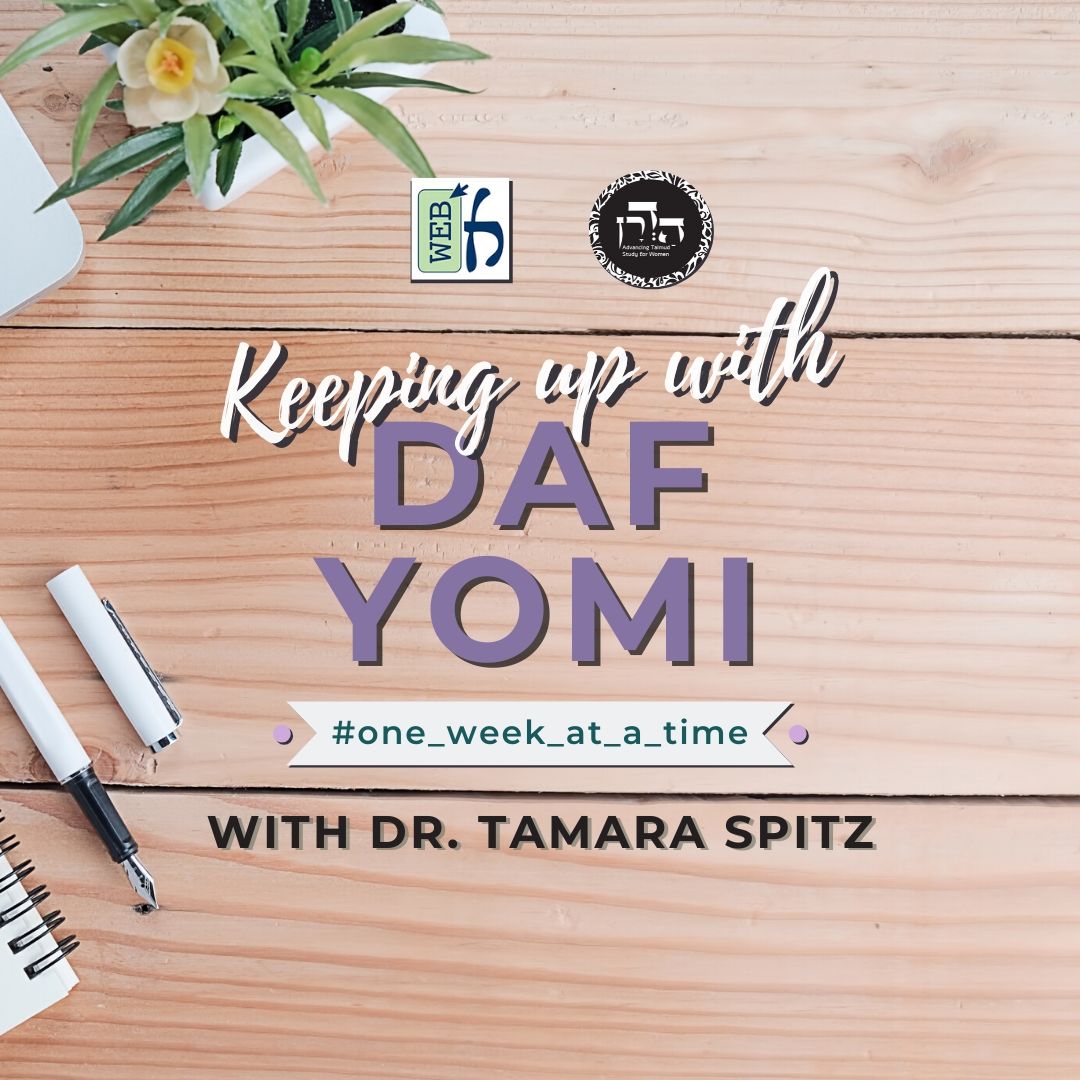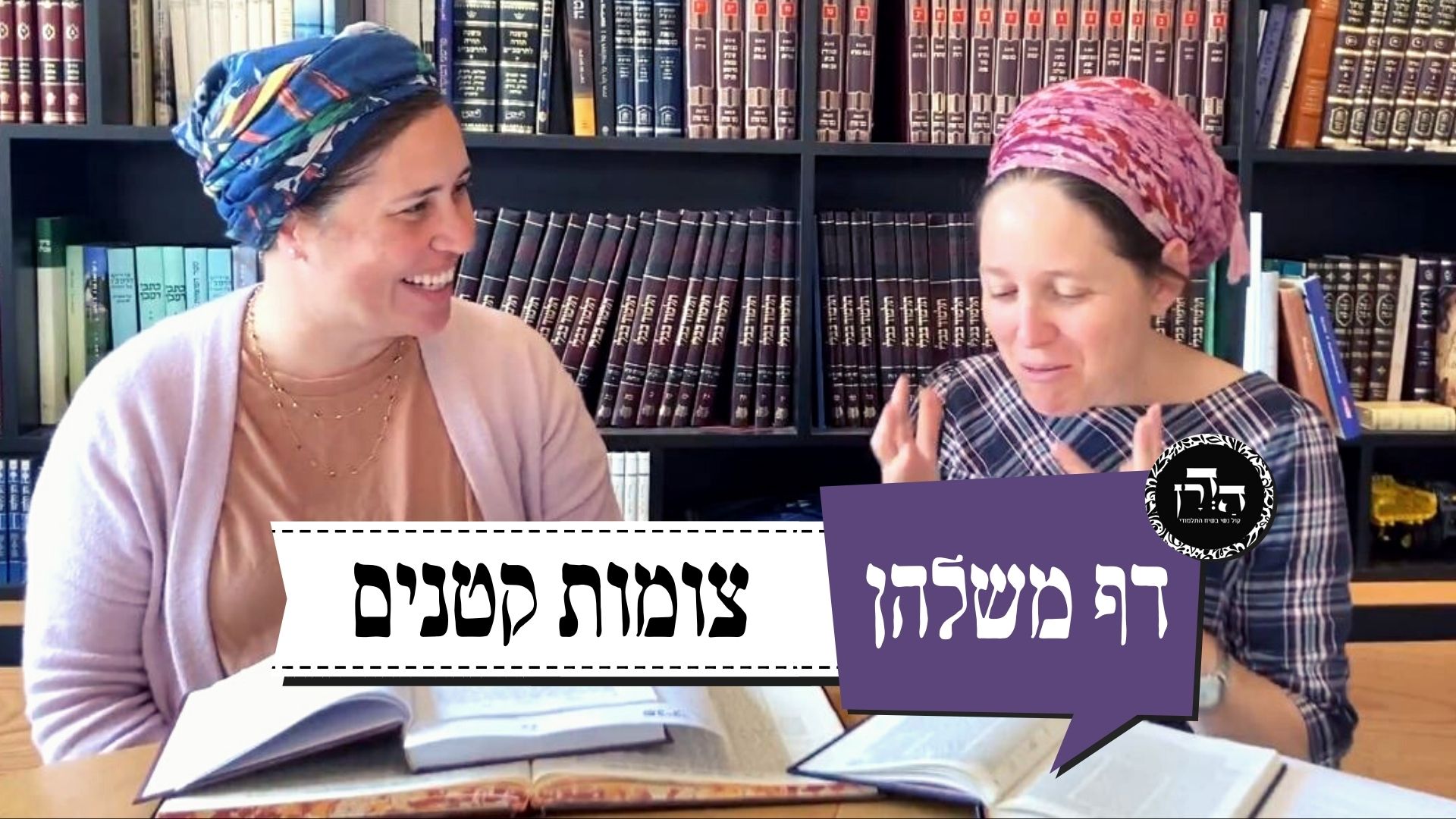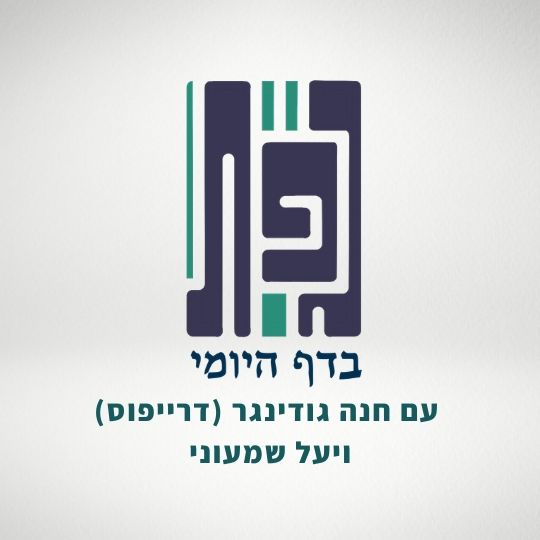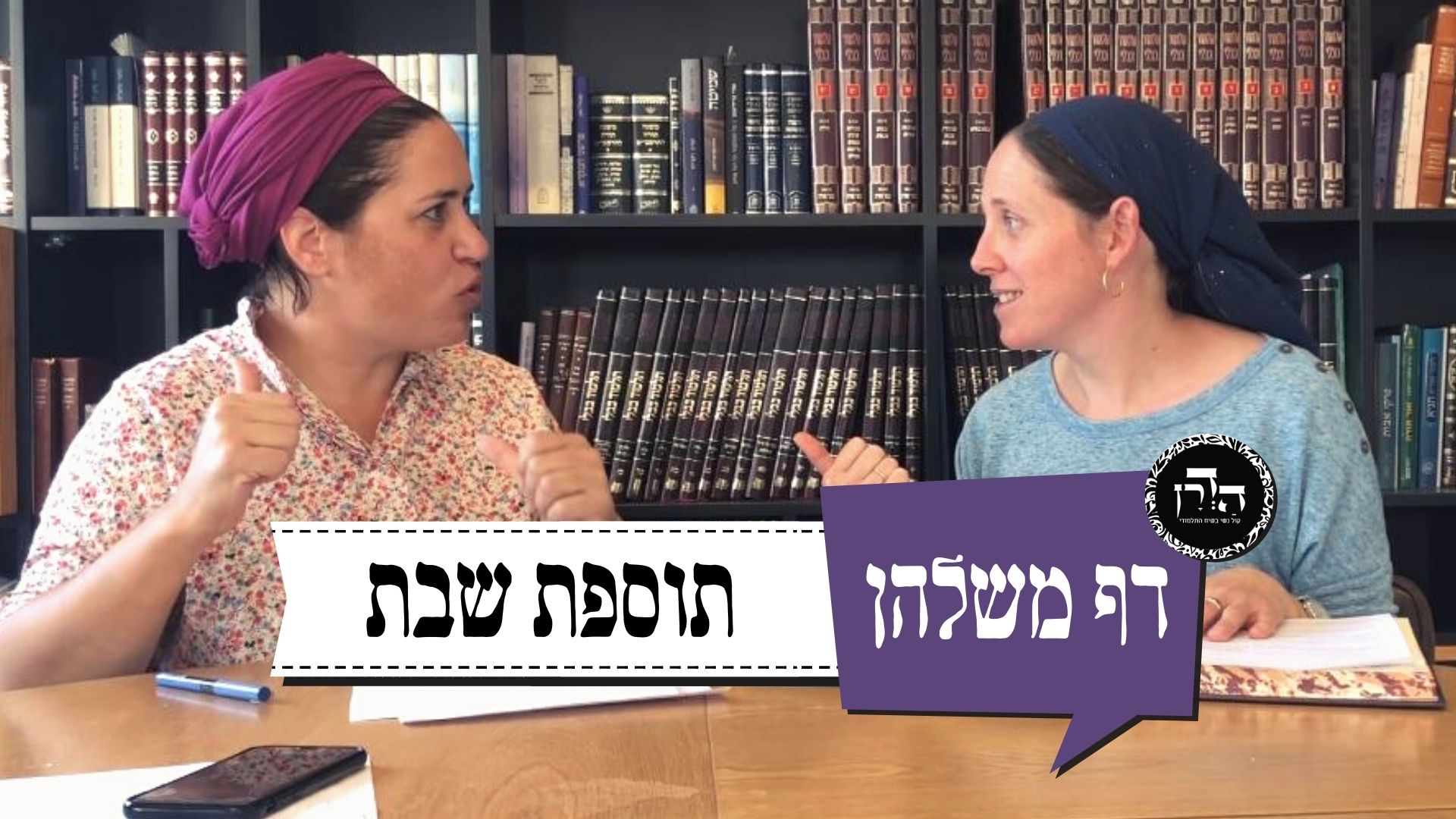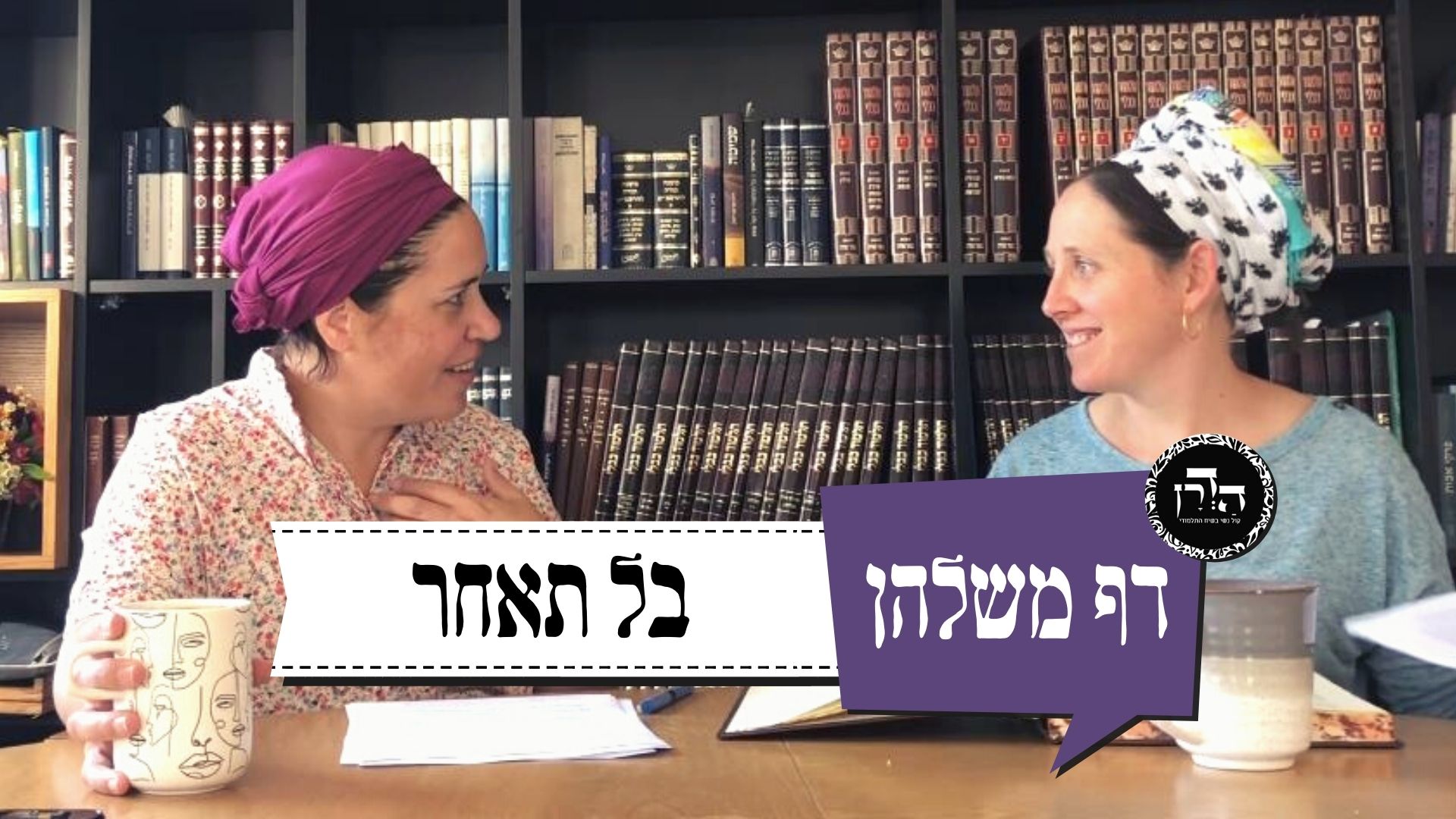ראש השנה לה
כִּי סְלֵיק רַבִּי אַבָּא מִיַּמֵּי, פֵּירְשַׁהּ: מוֹדִים חֲכָמִים לְרַבָּן גַּמְלִיאֵל בִּבְרָכוֹת שֶׁל רֹאשׁ הַשָּׁנָה וְשֶׁל יוֹם הַכִּפּוּרִים, וַהֲלָכָה מִכְּלָל דִּפְלִיגִי בִּבְרָכוֹת דְּכׇל הַשָּׁנָה.
The Gemara answers: When Rabbi Abba returned from his travels at sea, he explained the matter as follows: The Sages concede to the opinion of Rabban Gamliel with regard to the blessings of Rosh HaShana and of Yom Kippur, that in these cases the prayer leader fulfills the obligation on behalf of the many. And Rabbi Yoḥanan’s statement that the halakha is in accordance with Rabban Gamliel, which, by inference, indicates that the tanna’im still disagree, is referring to the blessings of the entire year.
אִינִי?! וְהָאָמַר רַבִּי חָנָה צִיפּוֹרָאָה אָמַר רַבִּי יוֹחָנָן: הֲלָכָה כְּרַבָּן גַּמְלִיאֵל בִּבְרָכוֹת שֶׁל רֹאשׁ הַשָּׁנָה וְשֶׁל יוֹם הַכִּפּוּרִים!
The Gemara raises a difficulty. Is that so? Didn’t Rabbi Ḥana from the city of Tzippori say that Rabbi Yoḥanan said: The halakha is in accordance with the opinion of Rabban Gamliel with regard to the blessings of Rosh HaShana and of Yom Kippur? Apparently, he holds that the tanna’im remain in dispute even with regard to these blessings.
אֶלָּא אָמַר רַב נַחְמָן בַּר יִצְחָק: מַאן מוֹדִים — רַבִּי מֵאִיר, וַהֲלָכָה מִכְּלָל דִּפְלִיגִי — רַבָּנַן.
Rather, Rabbi Yoḥanan’s statements must be attributed to different Sages, as Rav Naḥman bar Yitzḥak said: Who concedes to the opinion of Rabban Gamliel? Rabbi Meir. And with regard to Rabbi Yoḥanan’s ruling that the halakha is in accordance with Rabban Gamliel, which, by inference, indicates that the tanna’im still disagree, this is referring to the Rabbis, who disagree with Rabbi Meir.
דְּתַנְיָא: בְּרָכוֹת שֶׁל רֹאשׁ הַשָּׁנָה וְשֶׁל יוֹם הַכִּפּוּרִים — שְׁלִיחַ צִבּוּר מוֹצִיא הָרַבִּים יְדֵי חוֹבָתָן, דִּבְרֵי רַבִּי מֵאִיר. וַחֲכָמִים אוֹמְרִים: כְּשֵׁם שֶׁשְּׁלִיחַ צִבּוּר חַיָּיב — כָּךְ כָּל יָחִיד וְיָחִיד חַיָּיב.
The Gemara explains: As it is taught in a baraita: With regard to the blessings of Rosh HaShana and of Yom Kippur, the prayer leader fulfills the obligation on behalf of the many. This is the statement of Rabbi Meir. And the Rabbis say: Just as the prayer leader is obligated in these prayers, so too, every individual is obligated to recite them on his own. Clearly, Rabbi Meir agrees with Rabban Gamliel with regard to the blessings of Rosh HaShana and Yom Kippur, while the Rabbis dispute this ruling.
מַאי שְׁנָא הָנֵי? אִילֵּימָא מִשּׁוּם דִּנְפִישִׁי קְרָאֵי — וְהָאָמַר רַב חֲנַנְאֵל אָמַר רַב: כֵּיוָן שֶׁאָמַר ״וּבְתוֹרָתְךָ כָּתוּב לֵאמֹר״ שׁוּב אֵינוֹ צָרִיךְ! אֶלָּא מִשּׁוּם דְּאָוְושִׁי בְּרָכוֹת.
The Gemara asks: What is different about these blessings of Rosh HaShana and Yom Kippur, that Rabbi Meir concedes to the opinion of Rabban Gamliel only with regard to them, but not about the blessings recited the rest of the year? If we say that it is due to the many verses that are included in these blessings, this is difficult. Didn’t Rav Ḥananel say that Rav said: Once one has recited the line of the prayer: And in Your Torah it is written, saying, it is no longer necessary to recite the verses themselves. Rather, it is because there are many blessings, and as the blessings are long, not everyone is capable of learning them by heart.
גּוּפָא, אָמַר רַב חֲנַנְאֵל אָמַר רַב: כֵּיוָן שֶׁאָמַר ״וּבְתוֹרָתְךָ כָּתוּב לֵאמֹר״ — שׁוּב אֵינוֹ צָרִיךְ. סְבוּר מִינַּהּ: הָנֵי מִילֵּי בְּיָחִיד, אֲבָל בְּצִבּוּר לָא. אִתְּמַר, אָמַר רַבִּי יְהוֹשֻׁעַ בֶּן לֵוִי: אֶחָד יָחִיד אֶחָד צִבּוּר, כֵּיוָן שֶׁאָמַר ״וּבְתוֹרָתְךָ כָּתוּב לֵאמֹר״ — שׁוּב אֵינוֹ צָרִיךְ.
The Gemara discusses the matter itself. Rav Ḥananel said that Rav said: Once one has recited the line of the prayer: And in Your Torah it is written, saying, it is no longer necessary to recite the verses themselves. The Gemara clarifies the scope of this ruling: Some understood from this that it applies only to an individual; however, with regard to a congregation, no, this is not the case. Nevertheless, it is stated that Rabbi Yehoshua ben Levi said: Both with regard to an individual and a congregation, once one has recited: And in Your Torah it is written, saying, it is no longer necessary to recite the verses.
אָמַר רַבִּי אֶלְעָזָר: לְעוֹלָם יַסְדִּיר אָדָם תְּפִלָּתוֹ, וְאַחַר כָּךְ יִתְפַּלֵּל. אָמַר רַבִּי אַבָּא: מִסְתַּבְּרָא מִילְּתֵיהּ דְּרַבִּי אֶלְעָזָר בִּבְרָכוֹת שֶׁל רֹאשׁ הַשָּׁנָה וְשֶׁל יוֹם הַכִּפּוּרִים וְשֶׁל פְּרָקִים, אֲבָל דְּכׇל הַשָּׁנָה — לָא.
§ Rabbi Elazar said: A person should always arrange his prayer in his mind and only then pray. Rabbi Abba said: Rabbi Elazar’s statement is reasonable with regard to the blessings of Rosh HaShana and Yom Kippur and in the case of prayers that are recited only intermittently. However, with regard to blessings recited all year, no, this practice is not necessary.
אִינִי?! וְהָא רַב יְהוּדָה מְסַדַּר צְלוֹתֵיהּ וּמְצַלֵּי! שָׁאנֵי רַב יְהוּדָה, כֵּיוָן דְּמִתְּלָתִין יוֹמִין לִתְלָתִין יוֹמִין הֲוָה מְצַלֵּי, כִּפְרָקִים דָּמֵי.
The Gemara asks: Is that so? Didn’t Rav Yehuda first arrange his prayer in his mind and only then pray, even on an ordinary day? The Gemara answers: Rav Yehuda was different, since he would pray only once every thirty days. During the rest of the month he would not engage in prayer, as he was busy with Torah study. Therefore, for him even regular weekdays prayers were like prayers recited intermittently.
אָמַר רַב אַחָא בַּר עַוִּירָא אָמַר רַבִּי שִׁמְעוֹן חֲסִידָא: פּוֹטֵר הָיָה רַבָּן גַּמְלִיאֵל אֲפִילּוּ עַם שֶׁבַּשָּׂדוֹת. וְלָא מִיבַּעְיָא הָנֵי דְּקָיְימִי הָכָא?!
Rav Aḥa bar Avira said that Rabbi Shimon Ḥasida said: Rabban Gamliel would allow the prayer leader to exempt even the people who were in the fields and away from the synagogue. The Gemara challenges: This statement implies that the prayer leader exempts even the people in the fields, and needless to say, he exempts those who are here in the city but did not attend the prayer service in the synagogue.
אַדְּרַבָּה: הָנֵי אֲנִיסִי, הָנֵי לָא אֲנִיסִי,
The Gemara questions this conclusion: On the contrary, the opposite is more reasonable: Those in the fields did not come to the synagogue due to circumstances beyond their control, and therefore they should be allowed to fulfill their obligation through the prayer leader. By contrast, those in the city were not prevented from coming to the synagogue due to circumstances beyond their control. Consequently, they should not fulfill their obligation through the prayer leader.
דְּתָנֵי אַבָּא בְּרֵיהּ דְּרַב בִּנְיָמִין בַּר חִיָּיא: עַם שֶׁאֲחוֹרֵי כֹּהֲנִים — אֵינָן בִּכְלַל בְּרָכָה.
As Abba, son of Rav Binyamin bar Ḥiyya, taught in a baraita: Those people standing in the synagogue behind the priests during the Priestly Blessing, who are not positioned in front of them, face-to-face, are not included in the blessing. They are expected to make the minimal effort to stand in front of the priests. However, those in the fields are included in the Priestly Blessing.
אֶלָּא, כִּי אֲתָא רָבִין: אָמַר רַבִּי יַעֲקֹב בַּר אִידֵּי אָמַר רַבִּי שִׁמְעוֹן חֲסִידָא: לֹא פָּטַר רַבָּן גַּמְלִיאֵל אֶלָּא עַם שֶׁבַּשָּׂדוֹת, מַאי טַעְמָא — מִשּׁוּם דַּאֲנִיסִי בִּמְלָאכָה, אֲבָל בָּעִיר — לֹא.
Rather, Rabban Gamliel’s statement should be understood differently: When Ravin came from Eretz Yisrael to Babylonia, he reported that Rabbi Ya’akov bar Idi said that Rabbi Shimon bar Ḥasida said: Rabban Gamliel allowed the prayer leader to exempt only the people in the fields. What is the reason for this? Because the people in the fields are unable to come to the synagogue due to work circumstances beyond their control, and do not have time to prepare their prayers. However, Rabban Gamliel did not exempt those in the city who do not come to the synagogue, as they are able to prepare their prayers and pray by themselves.
הַדְרָן עֲלָךְ יוֹם טוֹב וּסְלִיקָא לַהּ מַסֶּכֶת רֹאשׁ הַשָּׁנָה



